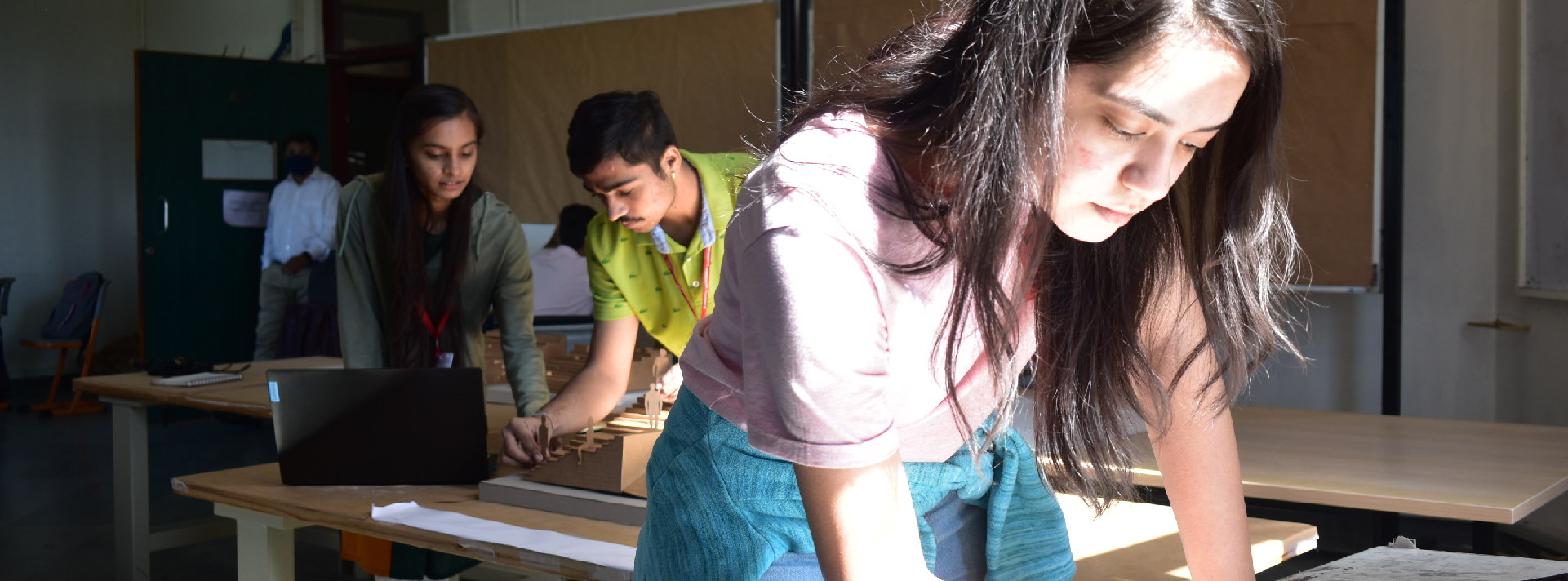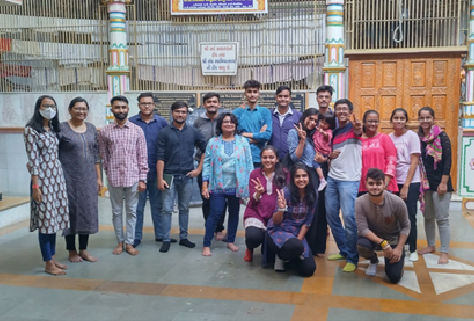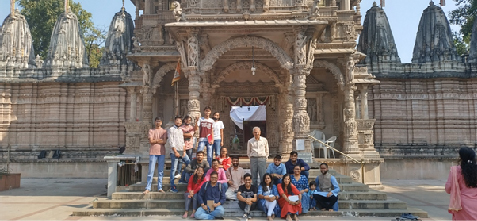Announcement
Get Ready for INDUS CUP 2K26! | Dates: 5–10 January 2026 | Stand a Chance to Win Cash Prizes up to ₹10,00,000!...Read more Get Ready for INDUS CUP 2K26! | Dates: 5–10 January 2026 | Stand a Chance to Win Cash Prizes up to ₹10,00,000!
We are excited to announce the Indus Hackathon 2025, an exhilarating one-day event organized by the CSE Department of Indus University....Read more We are excited to announce the Indus Hackathon 2025, an exhilarating one-day event organized by the CSE Department of Indus University.
26th ISTE Faculty Annual State Convention will be held at Indus University on April 27, 2023....Read more 26th ISTE Faculty Annual State Convention will be held at Indus University on April 27, 2023.
Get Ready for INDUS CUP 2K26! | Dates: 5–10 January 2026 | Stand a Chance to Win Cash Prizes up to ₹10,00,000!...Read more Get Ready for INDUS CUP 2K26! | Dates: 5–10 January 2026 | Stand a Chance to Win Cash Prizes up to ₹10,00,000!
We are excited to announce the Indus Hackathon 2025, an exhilarating one-day event organized by the CSE Department of Indus University....Read more We are excited to announce the Indus Hackathon 2025, an exhilarating one-day event organized by the CSE Department of Indus University.
26th ISTE Faculty Annual State Convention will be held at Indus University on April 27, 2023....Read more 26th ISTE Faculty Annual State Convention will be held at Indus University on April 27, 2023.

Architecture is a broad yet intricate discipline, a profession, a part of a culture, an art that shapes the built environment. Architects create, respond, direct, elicit by drawing motivation from nearly anything. It could be music, dance-forms, philosophy, social sciences, clothing, cultures, the expanding digital universe, and also from reflective moments of solitude, hand-wrought objects, daily necessities of life and from the world at large.
B.Arch (Bachelor of Architecture) Program at Indus University is approved by Council of Architecture, New Delhi. IDEA prepares students in various facets of the profession viz. architectural theory, history and practice. We believe in an institution being a place to gain knowledge and prepare the students to address the real-world issues in built environment. Students are motivated to think about architecture as a response to context, climate, culture, and occupants. A research-based hands-on approach is imparted where students deal with real-life issues of society so that they grow into well-rounded professionals who can be assets not only to the profession of architecture but also to the nation and humanity.
Indus University offers B.Arch program (5 year duration) which is designed to cultivate minds that can think differently and create alternate approaches for the future of architecture. B.Arch at Indus University is a comprehensive program that provides theories, design concepts, technical experience and practicum, empowering the graduates to parlay their learnings into innovative, technically sound, climate responsive and energy efficient building designs. We are equipped with outstanding faculty with numerous years in professional practice, and with access to centers of academic excellence and state-of-the-art facilities.
A research cell was established at IIDEA (Indus Institute of Design Environment and Architecture) in 2015. It complements the teaching methodology with specifics on the overall development of students focusing on building materials, technology, and professional practice. We collaborate with various national and international agencies to help students look at architecture not only from a building-spaces perspective but also from a socio-cultural lens. We drive the students to comprehend the cultural and demographic significance in architecture alongside the modern-day trends. IIDEA Research Cell also serves to document, clarify, and compile the outcomes of such research endeavours and bring out publications from time to time.
IIDEA is all about imparting architecture education in the most efficient and productive ways. As a result, a module-based system has been devised wherein similar subjects with corresponding studies are clubbed together to form a module. Only one module is run simultaneously, through all days of the allocated weeks. Design Module, the most important of all modules, comes-in at last; with the understandings of preceding modules developed so that their learnings bestow better, more efficient, and more thorough outcomes.
The Admission Committee will admit 75% of the authorized enrollment for each course for Professional Courses (ACPC) based on merit. Following the outcome, the student needs to register with ACPC. 25% of the authorized enrollment for each course are Management Quota seats, with the Institute handling admission following ACPC criteria.
For the academic year 2024, candidates must meet the eligibility standards outlined in the CoA norms (Minimum Standards of Architectural Education) Regulations of 2020 to enroll in the first year of the 5-year B.Arch degree program.
No applicant shall be admitted to the architecture program until they have either passed the 10+2 Examination with Physics, Chemistry, and Mathematics as a required subject or the 10+3 Diploma Examination with Mathematics as a required subject.
The applicant must pass an architecture aptitude test administered by the Council of Architecture's "NATA" or NTA (i.e., JEE).
Student Intake: 40.
Note:
Admission Committee for Professional Courses (ACPC) is a body constituted by the Government of Gujarat to regulate the admission of candidates for admission in Architecture.
For details, please visit the official website of the Admission committee for professional courses of the Government of Gujarat www.jacpcldce.ac.in.
The official Admission process for B.Arch for the academic year 2022-23 will commence as per the guidelines given by the Council of Architecture and directives from ACPC and the Government of Gujarat Education Department.
Architecture field demands a nurturing culture and interactive sessions between students and faculty to develop a progressive environment. To create a future-ready and a more relevant breed of young architects, architecture education must extend its boundaries to other sciences; to create a comfortable and balanced built and living environment. The curriculum needs to concentrate on a more contextual approach to understanding social sciences and economics. By doing so, we are competent to create a flexible and reflective awareness. At IIDEA, we put forward a principal perspective supporting collaborative innovation, creative freedom, and future relevance. To address this, we have designed "Collaborative Programs", which encompass the following ways:
These programs help bolster students' holistic development, in line with the Indus philosophy of creating competitive, adaptive professionals with problem-solving capabilities, wisdom of context and sensitized considerations for society and environment.
Architecture is more of a unique idea and work of art. In this field, everyone has their place. Passion fuels this line of work.
The rise in the building and design industries makes opportunities for B.Arch students incredibly high. They are required by several public and private entities.
Both the office and the job site are open to architects. They are employed by building companies as designers. Additionally, students have the option of working on their own and consulting for a living.
Governmental organizations like the Ministry of Defense, Housing and Urban Development Corporation, Public Works Department, National Building Organization, and Archaeological Department are offering opportunities to B.Arch candidates.
The demand for architects in India is very high. The Indian government is providing enormous chances for architects in the nation to meet the needs of the nation's expanding economy and population. Following your architecture study, you might consider the following job profiles.
Today, employers choose candidates based on how well they fit their requirements. Students should be aware of the selection criteria that employers prioritize. Meeting the employer's needs requires effective communication, persuasion, negotiating skills, resume writing, a positive attitude, motivation, strategic planning, and interview preparation.
Professional Architects can build careers as independently practicing Architects, Architects working within Architectural firms, academics concentrated on teaching and research, or within non-governmental organizations. In India, the Architectural profession is regulated by the Council of Architecture (CoA), established by Parliament through the Architects Act, 1972.

